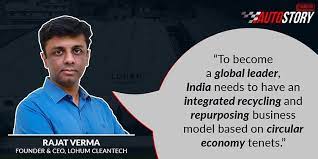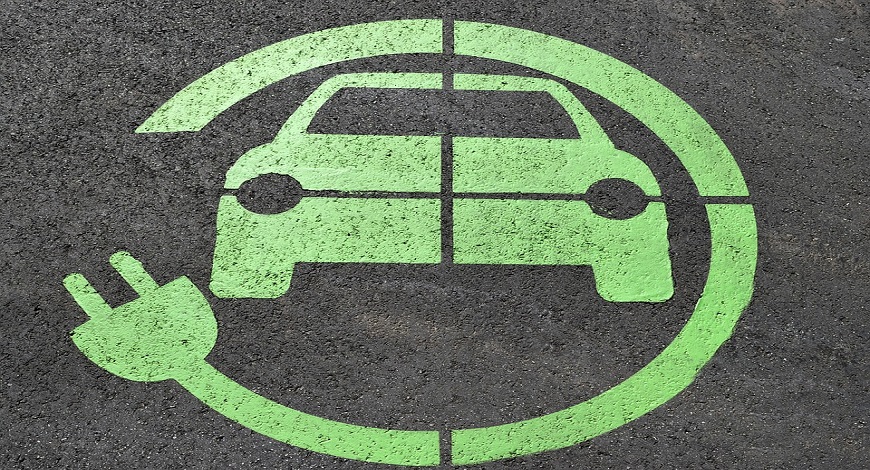Solar energy is one of the most promising renewable energy sources that can help reduce greenhouse gas emissions and combat climate change. However, solar energy is variable, intermittent, and dependent on the availability of sunlight. To overcome this challenge, solar energy systems need to be paired with efficient and reliable energy storage solutions that can store excess solar power during the day and supply it when needed, which is what Lithium ion solar battery systems are configured to supply.
Previously, we’ve discussed various topics around the use of sustainable second-life battery solutions in stationary Energy Storage Systems (ESS or BESS). These ESS, ideally consisting of a repurposed Lithium-ion solar battery array or setup, lower businesses’ consumption of grid energy while effectively improving the reliability of energy.
While such sustainable Lithium-ion solar battery ESS solutions are ideal for emissions reductions in business operations, this edition will also dive into how a lithium-ion solar battery setup can be integrated into office environments for energy efficiency and sustainability. Beyond the obvious benefits, we’ll explore the more nuanced advantages, like reduced sound pollution and circular economy.
How Lithium ion Solar Battery Setups Make For Green Offices
- Lithium ion solar battery technology has a high energy density, long cycle life, and fast charging and discharging capabilities, which make it suitable for storing solar energy and providing backup power during grid outages or peak demand periods.
- A Lithium-ion solar battery setup is also more environmentally friendly than lead-acid or nickel-cadmium batteries, as they do not contain comparatively more toxic heavy metals, have lower idle or self-discharge rates, and require less maintenance.
- Solar panels can reduce the electricity bills and carbon footprint of offices, as well as provide clean and renewable energy that does not contribute to air pollution or climate change.
- Solar panels may also increase the value and attractiveness of green office premises, as they may improve the aesthetics and thermal insulation of the roofs and facades of buildings.
Lithium-ion Solar Battery Setup Can Help Lower Sound Pollution
- Lithium ion Solar Battery systems can replace or supplement conventional power sources, such as diesel generators or grid electricity, that can generate noise and vibrations.
- Lithium-ion Solar Battery setups are key to providing a stable and reliable power supply that may reduce the need for frequent switching or adjusting of air conditioners, fans, and other appliances that can cause noise fluctuations.
Another nuance of using lithium ion solar battery setup for green offices is the eco-friendliness of the system. Eco-friendliness is the degree to which a product or process minimizes the negative impacts on the environment and maximizes the positive impacts, i.e. how ‘green’ is the green office.
Some of the factors that determine the eco-friendliness of lithium ion solar battery setups are:
- The life cycle assessment of the lithium ion solar battery system considers the environmental impacts of the battery raw material extraction, manufacturing, transportation, installation, operation, maintenance, and disposal of the solar panels and batteries.
- The recycling and reuse or recyclability of the system components can reduce waste generation, resource consumption, and greenhouse gas emissions of the green office.
- The integration and optimization of the system with the office environment, can improve the energy efficiency, performance, and durability of the system.
Lithium ion solar battery setup can make green offices eco-friendly by:
- Using renewable and abundant resources, such as sunlight and the highly recyclable lithium element, that do not deplete fossil fuels or cause air pollution or climate change.
- Facilitating green and ethical practices, such as water conservation, energy saving, waste reduction, and traceability
- Enabling smart and modular technologies, such as ESS inverters, controllers, sensors, and software, that can monitor, control, and optimize the energy generation, storage, and consumption of resources.
Lithium ion solar battery setups can be integrated into office environments for energy efficiency and sustainability by:
- Choosing the appropriate size, type, and configuration of the lithium-ion solar battery array, based on the power demand, load profile, and available space of the office.
- Installing the batteries in optimal locations, such as the basement, rooftop, or parking lot, can ensure the safety and accessibility of the Lithium ion solar battery system.
- Connecting the batteries to the solar panels, grid, and office appliances, using wires, cables, and switches, can enable the smooth and secure flow of electricity.
- Maintaining the batteries regularly, such as checking the voltage, temperature, and state of charge, can prevent the degradation, damage, or failure of the batteries.
What Think-tanks, Scientists, and Regulatory Bodies Say
Batteries are essential for the transition to a low-carbon economy, as they can enable the integration of renewable energy sources, electrification of transport and industry, and reduction of greenhouse gas emissions. Several organizations have published reports and analyses on the role, potential, and challenges of batteries for green office environments and industrial decarbonization efforts.
Here is a brief summary of some of their key findings and recommendations:
- Indian Government: The Government of India has set ambitious targets for renewable energy and electric mobility, which will require significant battery storage capacity. It is in the process of formulating policies to develop domestic battery manufacturing capability (eg. the Advanced Cell Chemistry manufacturing PLI scheme), as well as exploring strategic partnerships and investments in lithium and other critical minerals (Mineral stocks auction). It has also provided regulatory structure for battery recycling and reuse through the Battery Waste Management Rules (BWMR 2022).
- McKinsey & Company: The consulting firm has conducted several studies on the battery value chain, innovation, and sustainability. It highlights the rapid growth and cost reduction of battery technologies, especially lithium-ion, driven by the demand for electric vehicles (Know Types of batteries in electric vehicles) and grid-scale storage. It also identifies the opportunities and barriers for battery manufacturing and deployment in different sectors and regions, and the need for a holistic approach to address the environmental, social, and governance issues along the battery life cycle. It suggests that battery manufacturers, users, and policymakers should collaborate to create a circular and climate-neutral battery economy.
- International Energy Agency (IEA): The IEA published a joint study on the innovation in batteries and electricity storage based on patent data, along with the European Patent Office. The study revealed that the growth in battery patenting activity has been four times faster than the average of all technology fields, reflecting the importance and fervor of battery innovation in the clean energy transition. It also shows that Asia dominates the global battery market, while Europe and North America have strong positions in niche segments. It recommends that governments should support research and development, foster international collaboration, and facilitate market entry for new battery solutions.
- The World Economic Forum has established the Global Battery Alliance, a platform that brings together 42 global organizations from various sectors and regions to agree on guiding principles and actions for a sustainable battery value and energy transition materials chain. The development echoes the regulatory push towards Lithium ion solar battery powered infrastructure across the world.
- The World Resources Institute has identified five shifts needed to decarbonize the industry, including the adoption of new clean technologies such as industrial thermal batteries. In the same vein, an MIT alumnus recently developed a thermal battery that can store and deliver zero-carbon heat and power for industrial applications.
- The Center for Strategic and International Studies has examined the role of batteries and hydrogen technology in decarbonizing the electric power sector, and the challenges and opportunities for innovation and policy support.
- The Joint Research Centre of the European Commission has highlighted five ways that EU scientists are making batteries better, safer, and greener, such as improving performance, safety, recycling, circularity, and traceability.
Using Second life batteries repurposed from old EVs in Lithium-ion Solar Battery arrays supports this nascent ecosystem and accelerates the proliferation of clean technologies and sustainability best-practices across the green office of today and tomorrow.
How Lithium-ion Solar Battery Arrays Enable Offices to Go Green
By integrating a lithium-ion solar battery setup, green offices and buildings can benefit from the following:
- Reduced electricity bills: Lithium-ion solar battery setups can help offices and buildings reduce their dependence on the grid and lower their electricity bills. By storing solar power during the day and using it during peak hours or at night, businesses can avoid paying high tariffs or peak-demand charges. They can also sell excess solar power back to the grid or participate in demand-response programs, which can generate additional revenue or savings.
- Increased energy security: Lithium-ion solar battery arrays can provide backup power in case of grid outages or blackouts, which can disrupt the operations and productivity of offices and buildings. In some instances, power outages have resulted in millions of USD in damages and productivity losses, in as quickly as 11 hours. Lithium ion Solar Battery setups can also enhance the overall stability and quality of the power supply, which can prevent damage to sensitive equipment and appliances.
- Improved environmental performance: Lithium-ion solar batteries can help offices and buildings reduce their carbon footprint and greenhouse gas emissions by using clean and renewable solar power. They can also contribute to the circular economy; the secondary materials ecosystem by using repurposed or recycled batteries, which can extend their lifespan and reduce the need for virgin materials and waste disposal.
To Conclude
The integration of lithium-ion solar battery arrays or setup into office environments propels workspaces towards a greener future and also positions early adopters of clean-tech as pioneers in the broader mission of combating climate change and fostering a circular and climate-neutral battery economy. The green office revolution, fueled by innovative new technologies and strategic collaborations, reflects the transformative potential of sustainable energy storage solutions in shaping the future of workspaces.
By implementing these steps, eco-conscious green offices and institutions can leverage the potential of lithium-ion solar battery systems to go green and save money, while also contributing to the sustainability and circularity of the battery industry and society.
Follow LOHUM’s LinkedIn for more insights and updates on sustainable energy storage solutions, Lithium ion Solar Battery, battery energy, the energy transition, circular economy, EV battery recycling, and battery repurposing!



